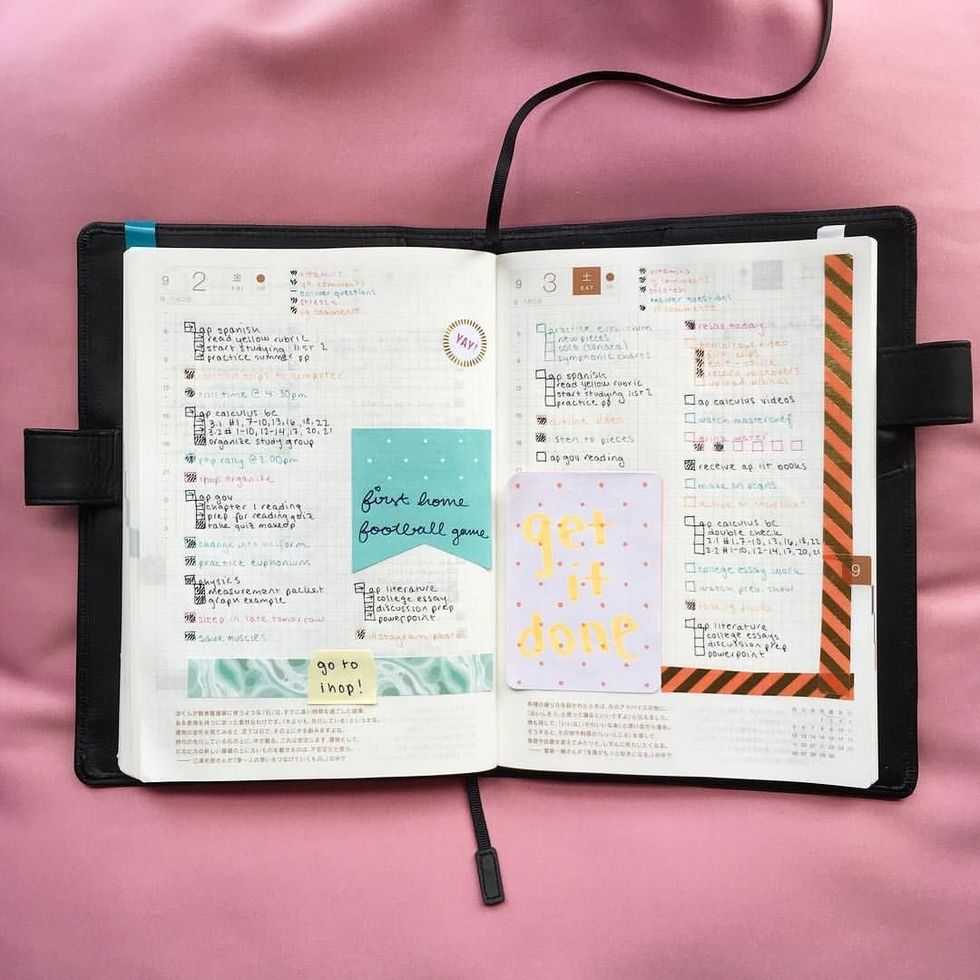Congrats! You're about to begin an exciting chapter of your life. Getting to study your passion in college is such a special privilege. You deserve to feel good about it. However, first comes the application process. With scheduling, confusing college websites, and essays, there's a lot to plan for. This can get complicated in an art major, where transcripts and forms just aren't enough. Luckily, I have a few lessons to share as someone who just finished this journey and officially started pursuing a vocal performance degree. Here are nine tips on how to navigate these important months.
1. Start early.
If you can get started over the summer, do it. It sounds like a drag (I thought so, too), but Thanksgiving-weekend me would've been much less miserable if she wasn't churning out essay edits. Start talking to your teacher about audition repertoire. Plug the easy details, like personal info, into your applications. Think through essay prompts, even if you don't start writing yet.
The most important thing is to have your list of schools sooner rather than later. The earlier you know where you're applying, the less time until you'll know exactly you need. I would recommend settling this by October 1st (most music schools have December 1st deadlines).
2. Make to-do lists.

@studyign_com
Nowhere I applied had a clear-cut list of all their application materials in one place. Compiling one myself ensured that I wasn't repeatedly searching for the same info.
Making several different lists helped me. My main references were outlines- one per school- with the requirements clearly written. Then, I had a couple of others, such as necessary repertoire. This one helped me determine how many pieces I actually had to prepare. (I applied to eight schools, but since they had similar requirements, I only needed 4 songs total.) Other lists included essay details and audition dates.
3. Organize information in the way that will help you most.
You don't need to use the method I explained in tip #3. For some people, using folders or binders is great, and for others, Google Docs works better. I needed to be able to see everything all at once, so I hung up my outlines in the room where I worked on my applications. It's up to you.
4. Go to campus.

author's own
Obviously, if you can't, that's okay. The goal is to get a feel for where you could end up. One of my final choices was a school with an excellent reputation, but I could tell from walking around campus that its environment wasn't for me. Talking to current students, especially if you know them, works, too. Remember- coursework is important at college, but you're joining a community as well. Aim for a good experience all around.
5. Submit prescreening videos.
Some schools let you choose, but you should always, always send in a video (unless it's Juilliard, which only takes audio). They're more trustworthy because the professors can see it's definitely you performing. One of the most talented singers I've met got denied from several schools after sending in audios. Just play it safe! The good thing is that schools won't demand that you use expensive equipment. Their priority is adequate sound quality.
6. Consider money - not too much, but not too little.
One of the things I regret is applying mostly to schools whose sticker prices were high. I'm not saying that you should rule anywhere out just because of the starting price- you could get a great financial aid package! I just wish I'd applied to more schools that were cheaper, like state schools.
7. Audition on-site.

Try your best to travel there so that you can meet the faculty (they usually don't all go to regionals) and let them hear you in person. Not only that- some schools say that they actually favor live auditions from the get-go.
8. Apply to schools with varying skill reputations.
If you apply only to uber-competitive conservatories, you risk ending up with too few choices. If you apply only to the least selective schools, you could be underestimating yourself big-time. Apply to both- and the ones in the middle!
9. Ask for others' input.

Perform for your colleagues (it often makes the auditions less scary in comparison!). Ask trusted musicians who you know and who know you about where you might fit. You need to make your own decisions, but others can offer pivotal perspectives. Professionals often have important information from working with graduates of the schools you're eyeing and sending their own students there. Make them your mentors.
Though this is a long and tiring process, don't let yourself become overwhelmed. This is an exciting time full of new opportunities. I wish you the best of luck in all your musical endeavors!



















